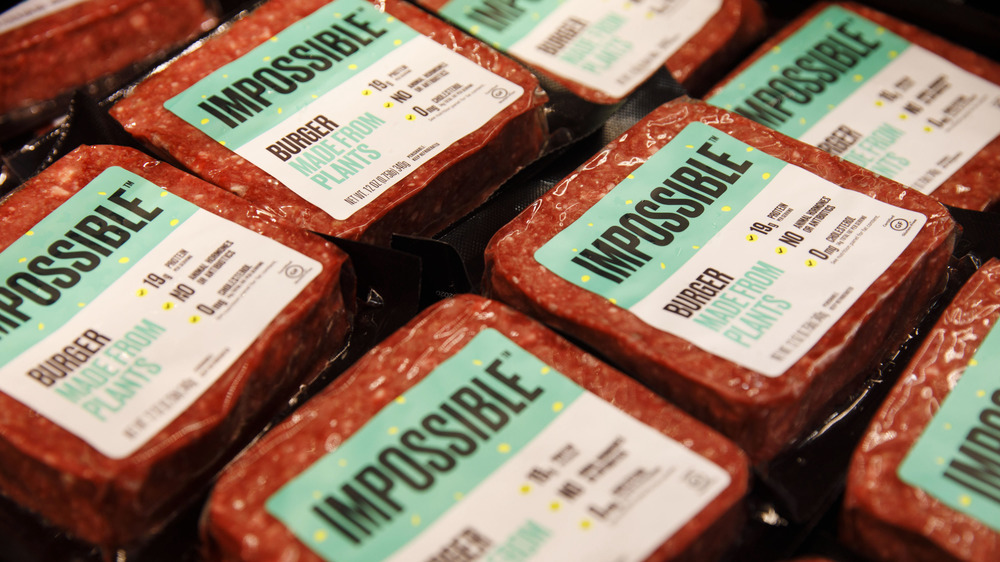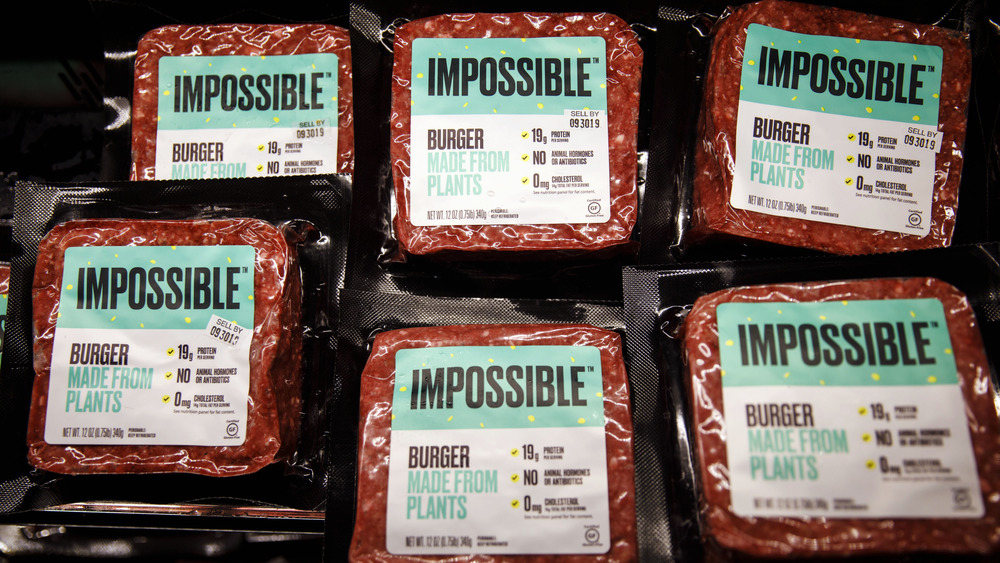Why The FDA Is Being Sued For This Impossible Meat Ingredient
Impossible Foods is one of the most popular, plant-based meat alternatives on the market. One of the main reasons for its popularity is their use of the ingredient soy leghemoglobin, otherwise known as heme, which gives Impossible Foods products an authentic "bloody" texture that makes them taste and feel very similar to real meat products. Heme is a color additive that's structurally similar to the hemoglobin found in animal blood, but it can also be found inside the roots of the soybean plant. The heme that Impossible Foods uses in their products is entirely plant-based, and is manufactured using genetically engineered yeast, according to High Plains Journal.
However, on January 29th, 2021, the Center for Food Safety (CFS) filed a lawsuit against the FDA, claiming the organization didn't perform adequate animal testing on the heme additive to ensure its consumer safety before allowing Impossible Foods to include the ingredient in their products. "While CFS, like many others, avidly supports plant-based eating, enthusiasm for meatless products cannot be used as an excuse to skirt food safety laws," the organization said in a press release.
Did the FDA fail to conduct adequate food safety tests on heme?
CFS argued that, because heme is a color additive, it should be subjected to extremely high safety standards and must show even stronger evidence of food safety than other ingredients — but they believe that these rigorous testing requirements haven't been met. Bill Freese, a science policy analyst at CFS, explained that the "FDA approved soy leghemoglobin even though it conducted none of the long-term animal studies that are needed to determine whether or not it harms human health. This includes studies for cancer, reproductive impairment, and other adverse effects called for by FDA's Redbook, the Bible of food and color additive testing," per CFS.
Additionally, Freese had a specific set of concerns about heme. "We find this to be all the more troubling because a number of potential adverse effects were detected in a short-term rat trial: disruption of reproductive cycles and reduced uterine weights in females, and biomarkers of anemia, reduced clotting ability, and kidney problems," he explained. The group has called for the FDA's approval of the heme additive to be revoked until further testing can be done.

